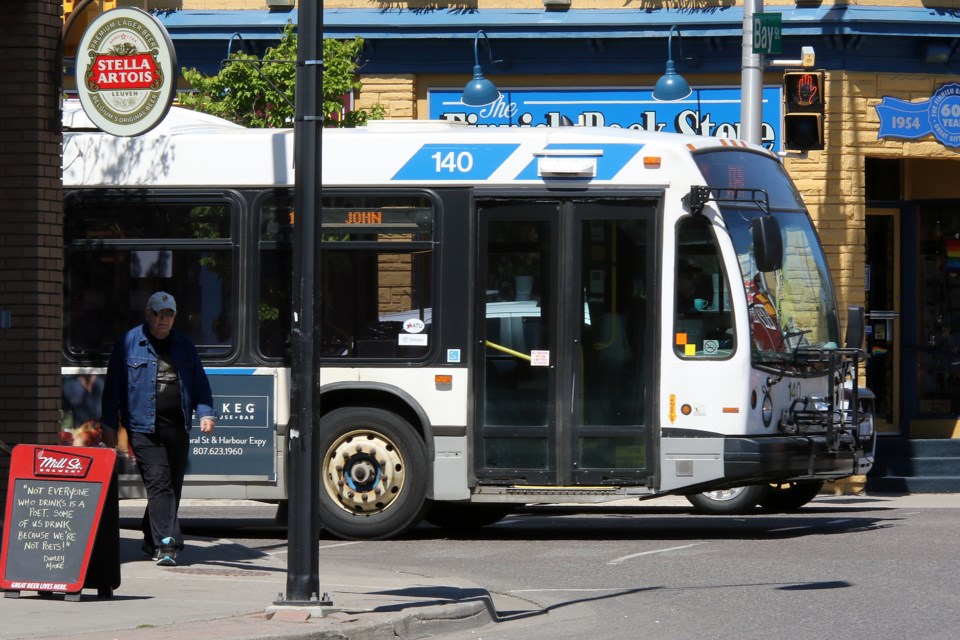THUNDER BAY — On the heels of the biggest passenger volume in its history, Thunder Bay Transit has unveiled proposed changes to meet the demands of a majority of its passengers.
Some bus routes would see increased frequency, while others would see a reduction.
Last year, the transit system provided more than 4 million rides, an increase of seven per cent from the previous year, thereby establishing a new record.
More than 50 per cent of those rides took place on just three routes: Crosstown, Memorial and Mainline.
Transit manager Brad Loroff says that means there is significantly less demand on some of the other 14 routes around the city.
"So we're looking at changing some of the service levels on lower-demand routes to make the service levels on the primary-demand routes more efficient," Loroff told Tbnewswatch in an interview.
He described the Crosstown, Memorial and Mainline buses as "the spine" of the transit system, where there is a demonstrated need for enhanced service.
Next week, at a series of drop-in Open House events, transit officials will seek public feedback on a number of options their consultants have developed.
One of those options is to establish an on-demand service for lower-ridership routes such as Neebing and Mission.
"We want to still provide service out there, but just in a different way, to be able to take some of our capacity and reallocate it elsewhere in the system," Loroff said.
Instead of a bus travelling on a fixed schedule, it might only be in service, he said, "when there is a demand for it, and we would know there is a demand for it through people booking it, like a dial-a-bus concept."
Another option being proposed is to utilize some of Thunder Bay Transit's existing paratransit Lift vehicles on conventional routes.
Loroff said other municipalities have already proven the effectiveness of these kinds of models for alternate on-demand service.
He added, however, that it's important to be careful with the implementation of reduced frequency, saying "You would obviously want to look at peak travel times vs. non-peak travel times and things like that."
Details will be provided at several meetings next week:
- Tuesday, Feb. 5. from 8 a.m. to 11 p.m. in the Lakehead University Agora, 1 p.m. to 4 p.m. at the Waterfront Terminal, and 7 p.m. at the West Arthur Community Centre
- Wednesday, Feb. 6. from 8:30 a.m. to 11:30 a.m. at City Hall, 1 p.m. to 4 p.m. at the Intercity Shopping Centre Food Court and 5 p.m. to 9 p.m. at the Fort William First Nation Community Centre
- Thursday, Feb 7. from 8 a.m. to 11 a.m. in the Confederation College SUCCI Lounge
Information is also available online at http://tbtfuture.fyi.
Loroff said feedback previously gathered from passengers was used to develop these options, but Thunder Bay Transit and its consultants want to learn how residents feel about what's being proposed.
Any service changes that are made, he noted, need to be accomplished within the existing transit budget.
